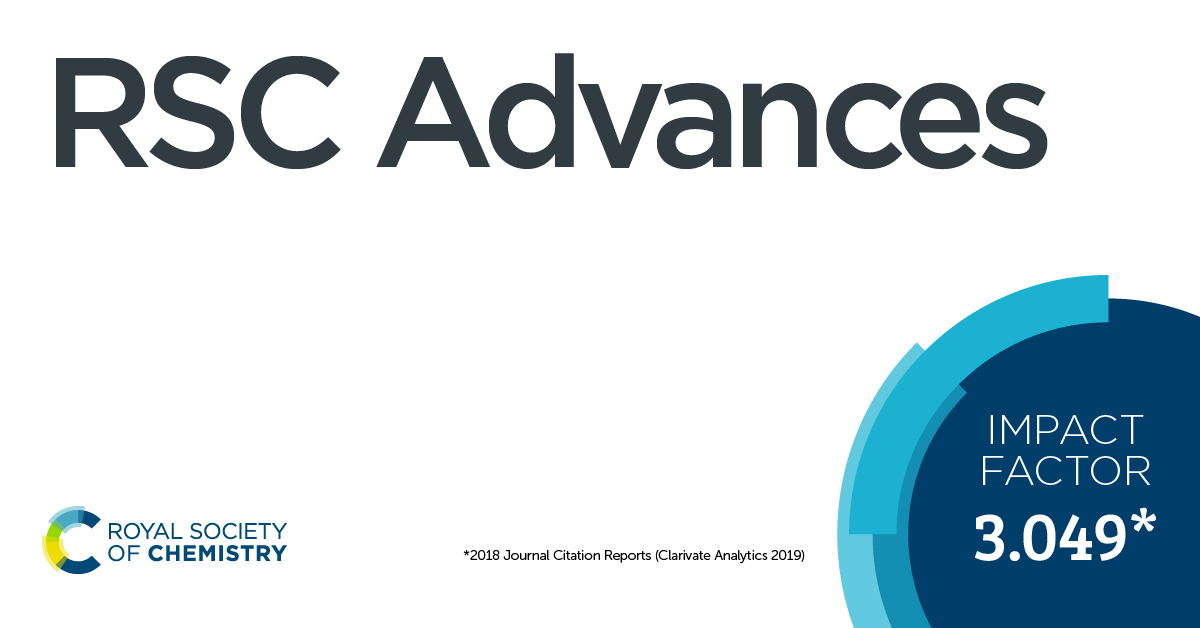We are delighted to announce our winners for the RSC Advances Outstanding Student Paper Awards 2021.
These awards recognise outstanding work published in the journal in 2021, for which a substantial component of the research was conducted by a student. We received over 900 nominations, which were shortlisted, and the winning papers were then selected by our Editorial Board and Associate Editors. Below, we highlighted the winner of each subject category, and highlight the research paper that won them the award.
Analytical chemistry
Vanessa N. Ataide, São Paulo University, Brazil
Vanessa is recognised for her outstanding contribution in the research advance presented in Enhanced performance of pencil-drawn paper-based electrodes by laser-scribing treatment.
Vanessa graduated in Chemistry (2015) from Presbyterian Mackenzie University. She received her M.Sc. (2018) from the Institute of Chemistry of the University of São Paulo under the supervision of Prof. Dr. Thiago R. L. C. Paixão. She is currently a Ph.D. student with the same supervisor and in the same institution. Her research interests include electrochemical paper-based devices, carbon materials, fabrication of electrochemical sensors using low-cost techniques, and analytical applications involving clinical and environmental interest species. She receives financial support from São Paulo Research Foundation – FAPESP (Grant Number: 2018/14462-0). She is currently doing an internship at Colorado State University under the supervision of Prof. Dr. Charles S. Henry, supported by FAPESP (Grant Number: 2021/10388-2). She is developing carbon-based low-cost electrochemical devices for the detection of Covid-19.
Biological & medicinal chemistry
Nova O. Dora, University of Kent, UK
Nova is recognised for her outstanding contribution in the research advance presented in Supramolecular self-associating amphiphiles (SSAs) as nanoscale enhancers of cisplatin anticancer activity.
Nova grew up in London and developed a strong interest in Science whilst at school. She went on to complete her undergraduate degree in Biology at the University of Kent, Canterbury during which she completed her final year research project investigating mechanisms of drug resistance in cancer cell lines. This was an area of great interest and so Nova then stayed at the University of Kent to complete a Masters by Research investigating the potential of supramolecular self-associating amphiphiles (SSAs) as novel cancer treatments. After completing her masters program, Nova completed a PGCE in secondary education and is now a science teacher at a secondary school in West London. In her free time Nova likes to partake in sports such as netball and swimming and enjoys travelling and reading.
Catalysis
Jairus L. Lamola, University of Johannesburg, South Africa
Jairus is recognised for his outstanding contribution in the research advance presented in Evaluation of P-bridged biaryl phosphine ligands in palladium-catalysed Suzuki–Miyaura cross-coupling reactions.
Jairus Lamola was born in Sebokeng, a small township in Gauteng Province, South Africa. He graduated with BSc in Chemistry and Biochemistry, and BSc Hons Chemistry degrees from the University of Johannesburg (South Africa) in 2015 and 2016, respectively. He then obtained a Master’s degree in Organic Chemistry, in 2018 under the supervision of Dr Edwin Mmutlane. He received the Faculty of Science Dean’s award for the best final-year BSc student in 2015 as well as the top third-year student awards in Chemistry and Biochemistry (2015).
He started PhD studies in Organic Chemistry in 2019 under the supervision of Prof. Chris Maumela and co-supervision of Prof. Cedric Holzapfel and Dr Paseka Moshapo. His doctoral research focuses on the design and development of novel P-bridged biaryl phosphine ligands for palladium-catalysed cross-coupling reactions. The PhD study has so far resulted in the publication of four research articles in international peer reviewed journals. Although he spends most of his time learning new aspects of life, he also enjoys cooking, storytelling, admiring nature and its biodiversity.
Computational and theoretical chemistry
Abhishek T. Sose, Virginia Tech, USA
Abhishek is recognised for his outstanding contribution in the research advance presented in Modelling drug adsorption in metal–organic frameworks: the role of solvent.
Abhishek Tejrao Sose is currently a fourth-year Ph.D. student working under the supervision of Dr. Sanket Deshmukh in the Department of Chemical Engineering at Virginia Tech. His research is focused on the integration of the newly emerging field of artificial intelligence (AI) with Molecular Dynamics (MD) and Monte Carlo (MC) simulations to accelerate the design of new hybrid materials including metal-organic frameworks (MOFs), for biomedical and energy applications. A large part of his research also involves the development of accurate and transferable all-atom (AA) and coarse-grained (CG) models that are accelerated by optimization algorithms.
After finishing his bachelor’s degree in Chemical Engineering at the Indian Institute of Technology (IIT) Bombay in 2017, Abhishek decided to pursue his doctoral studies at Virginia Tech. Thus far, he has published four peer-reviewed journal articles (including three first-authored articles) as part of his Ph.D. experience and given 6 oral presentations and 5 poster presentations at national and international conferences. Recently he was awarded the ‘Best poster award’ at Macromolecules Innovation Institute (MII) Technical Conference & review 2022 at Virginia Tech for his work on investigating the molecular-level interactions between polymers and functionalized metal-organic frameworks. Moreover, his work on the development of forcefield interactions between MoS2 and water was featured as a supplementary cover for The Journal of Physical Chemistry C (JPCC). His latest work on the ‘Investigation of structure and dynamics of water confined between hybrid layered materials of graphene, boron nitride, and molybdenum disulfide’ was published in The Journal of Material Science as an invited article.
Energy chemistry
Alexandra H. Teodor, University of Tennessee at Knoxville and Oak Ridge National Laboratory, USA
Alexandra is recognised for her outstanding contribution in the research advance presented in Aqueous-soluble bipyridine cobalt(ii/iii) complexes act as direct redox mediators in photosystem I-based biophotovoltaic devices.
Alexandra Heather Teodor was born in 1995. She received her B.S. in Biochemistry in 2016 from Virginia Polytechnic Institute and State University, focusing her studies on analytical and physical biochemistry. Alexandra then enrolled in the doctoral program of the joint University of Tennessee, Knoxville and Oak Ridge National Laboratory Graduate School of Genome Science and Technology. She joined the laboratory of Dr. Barry Bruce to pursue her doctoral research in bio-hybrid electronic devices, furthering her interests in spectroscopy, physical, and electrochemical sciences. Alexandra graduated with her PhD in 2022, and accepted a job offer as a Space Photovoltaics Scientist for The Aerospace Corporation in California. She hopes to continue doing impactful work that will give back to the community.
Environmental chemistry
Yin Sim Ng, Universiti Sains Malaysia, Malaysia
Yin Sim Ng is recognised for his outstanding contribution in the research advance presented in The enhancement of treatment capacity and the performance of phytoremediation system by fed batch and periodic harvesting
Yin Sim Ng was born and raised in Penang, Malaysia. He gained his Bachelor of Engineering (Hons.) in Chemical Engineering, from Universiti Sains Malaysia in 2014. During undergraduate studies, he secured JPA scholarship from Public Service Department of Malaysia. He thereafter successfully registered himself as a Graduate Engineer with Board of Engineers Malaysia (BEM). His passion and interest in biology, environmentally consciousness and the exposure to the final year project drove him to take up graduate studies in research related to phytoremediation and green technology (sustainable water and wastewater treatment). He joined Associate Professor Dr. Derek Chan Juinn Chieh group specialised in biochemical process and biotechnology involving plant and cell in the same faculty.
His Masters’ research focussed on phytoremediation studies in evaluating the exact phytoremediation rate (inorganics removal such as ammonia, nitrate and phosphate) by axenic method, the performance in fish farm wastewater and enhancing their treatment capacity and efficiency. He succeeded in isolation of the axenic cultures of Hemianthus callitrichoides, Vesicularia montagnei (Christmas moss), Salvinia molesta, Spirodela polyrhiza, and Lemna sp. for his study and side projects. He also received travel bursary from the university to attend International Phytotechnologies Conference in Hangzhou, China that organised by International Phytotechnology Society (IPS), Chinese Academy of Sciences (CAS) and Institute of Soil Science, Chinese Academy of Sciences (ISSCAS) in Autumn 2016. He obtained Master of Science (Chemical Engineering) in 2018. His doctorate studies concentrate on the role, mechanism, and mitigation of fouling from marine algae and their organics in the membrane distillation system. He obtained MyMaster Scholarship from Ministry of Education Malaysia and USM Fellowship from the university for his studies. So far, he has published 8 international journal papers and 1 conference proceedings (ISI and Scopus indexed). He was invited to perform 2 manuscript reviews in Journal of Hazardous Materials. He is also a member of Institution of Chemical Engineers (IChemE) and Microbiology Society, UK.
Food chemistry
Yao Lu, Renmin University of China, China
Yao Lu is recognised for her outstanding contribution in the research advance presented in Promotion effects of flavonoids on browning induced by enzymatic oxidation of tyrosinase: structure–activity relationship
Yao Lu received her M.S degree from the Department of Chemistry, Renmin University of China in 2021, under the guidance of Prof. Rui-Min Han. Her research field is physical chemistry mainly concerning the interactions of flavonoids with tyrosinase. Her research interest is biochemical reaction mechanism in the perspective of optical spectroscopy.
Inorganic chemistry
Aayushi Arora & Preeti Oswal, Doon University, India
Aayushi & Preeti are recognised for their outstanding contribution in the research advance presented in Catalytically active nanosized Pd9Te4 (telluropalladinite) and PdTe (kotulskite) alloys: first precursor-architecture controlled synthesis using palladium complexes of organotellurium compounds as single source precursors
Ms. Aayushi Arora who was born in Agra (INDIA) in the year 1993, studied at Doon University Dehradun (2017-2021) for Ph.D. under supervision of Dr. Arun Kumar. She has been the recipient of the highly prestigious Indo-U.S. Fellowship for Women in STEMM (WISTEMM). With this fellowship, she carried out research work in 2020 at Texas A&M University, U.S.A under supervision of Prof. John A. Gladysz. She has also been felicitated by the Hon’ble Governor of the State of Uttarakhand (INDIA) at Rajbhawan on Uttarakhand Foundation Day for her achievements as a young woman in science. Her research includes development and applications of new catalytic systems, designing fluorescent probes for sensing of metal ions and Werner’s complexes for hydrogen bond donor catalysis. She has contributed to publishing more than two dozen of publications including articles and book chapters. In a short span of time, her h-index is 8.
Preeti Oswal was born in Himachal Pradesh, India in 1995. After receiving B.Sc. and M.Sc. degrees in Chemistry in year 2017, she became the recipient of a highly prestigious and national-level DST-INSPIRE fellowship from Department of Science and Technology (DST), Government of India for pursuing Ph.D. research for five years. For last 04 and half years, she has been a Ph.D. scholar at Department of Chemistry, Doon University Dehradun (INDIA) under supervision of Dr. Arun Kumar. She is working on designing novel organochalcogen and organophosphorous compounds which she uses as building blocks for catalysts and electrolysts. Her research experience includes homogeneous, heterogenous and nano-catalysis of various organic reactions such as Suzuki coupling, C-O coupling, aldehyde to amide transformation, allylation of aldehydes and Sonogashira coupling. She has also fabricated Pd6P at nanoscale and explored its electrocatalytic application in hydrogen evolution reaction. At a very young age and in a short span of time, she has contributed to publishing more than 20 articles in the journals of high repute, and 4 book chapters.
Materials chemistry
Shyam K. Pahari, University of Massachusetts, USA
Shyam is recognised for his outstanding contribution in the research advance presented in Designing high energy density flow batteries by tuning active-material thermodynamics
Shyam Pahari is a doctoral candidate in inorganic chemistry at University of Massachusetts Dartmouth, studying energy materials in the lab of Prof. Patrick Cappillino. His dissertation research focuses on designing high energy-density active materials for non-aqueous redox flow batteries by examining the effect of molecular structure on thermodynamic properties of electrolytes. In particular, he investigates the interplay between solvation free energy and lattice enthalpy in determining active material solubility utilizing experimental and computational approaches.
Shyam is a first-generation college student and holds Master’s in Science from Tribhuvan University, Kathmandu. Prior to joining UMass Dartmouth, he briefly worked as a high school chemistry teacher.
Nanoscience
Mina Shawky Adly, Virginia Commonwealth University, USA
Mina is recognised for his outstanding contribution in the research advance presented in Efficient removal of heavy metals from polluted water with high selectivity for Hg(ii) and Pb(ii) by a 2-imino-4-thiobiuret chemically modified MIL-125 metal–organic framework
Mina Fanous is currently a lecturer of physical chemistry at Chemistry Department, Faculty of Science, Mansoura University. He earned his Bachelor of Science at Mansoura University, in 2012, and his master degree in Physical Chemistry from the same university. He received a joint supervision grant from the Ministry of Higher Education from 2019 to 2020. He has worked under the supervision of professor Samy El-Shall at the College of Humanities and Sciences, Virginia Commonwealth University, USA. In his thesis, he pioneered metal-organic frameworks (MOFs) for different applications in adsorption and catalysis. He has obtained Ph.D. degree in surface chemistry and catalysis
in 2021 from Mansoura Univesity. Recently, Mina’s research focuses on the synthesis of new MOFs and their applications related to the environment and energy such as heavy metals removal, solar steam generation, and supercapacitors. He supervises research activities in the same field and teaches surface chemistry to bachelor students in different programs at the faculty of science as well as catalysis to students at the faculty of education. He has been involved in a collaborative research project financed by STDF in Egypt. He has seven publications
in high impacted journals, one in JACS journal.
Organic chemistry
Ajaz Ahmed, Indian Institute of Integrative Medicine, India
Ajaz is recognised for his outstanding contribution in the research advance presented in Conversion of N-acyl amidines to amidoximes: a convenient synthetic approach to molnupiravir (EIDD-2801) from ribose
Ajaz Ahmed was born and brought up in the Poonch District of Jammu & Kashmir. He received B.Sc. from Govt Gandhi Memorial Science College Jammu, India, and M.Sc. in Organic Chemistry from Bundelkhand University Jhansi, U. P. India. Following this, he joined Indian Institute of Integrative Medicine (IIIM) Jammu, a laboratory under Council of Scientific and Industrial Research (CSIR), Jammu, Govt of India in August 2017 as Junior Research Fellow (JRF) after qualifying National Eligibility Test (NET) conducted by CSIR. He has cracked various national level exams like, CSIR-NET-JRF Dec.-2016, CSIR-NET-JRF-June 2017, GATE-2016, GATE-2019, and GATE-2020 conducted by IIT. He has recently submitted his thesis entitled “N-Glycosylation as a Tool Box for the Generation of Medicinally Important Nucleosides and Disaccharide Mimetics” to Academy of Scientific and Innovative Research (AcSIR) for Ph.D degree under the supervision of Dr. Debaraj Mukherjee, Principal scientist in Natural Product and Medicinal Chemistry Division. His area of research is glycoscience which includes nucleoside chemistry, oligosaccharide synthesis, total synthesis of biologically active compounds, development of novel methods for glycosylation. and affordable routes for active phramacetical ingredients (API). He has 11 published papers in different reputed journals of organic chemistry and 2 review articles to his credits and also filed three patents related to API synthesis.
Physical chemistry
Rosaria Cercola, University of York, UK
Rosaria is recognised for her outstanding contribution in the research advance presented in A “one pot” mass spectrometry technique for characterizing solution- and gas-phase photochemical reactions by electrospray mass spectrometry
Rosaria Cercola joined Caroline Dessent’s group at the University of York in 2015 as a PhD student, where she explored the gas-phase photochemistry of biological and pharmaceutical molecules.
She also developed a passion for science communication and outreach throughout her journey. She is now the Editorial Assistant at Science in School, the European journal for science teachers funded and supported by EIROforum.
Outside of work, Rosaria is the founder of “PhD and then what?” where she addresses themes like life abroad, PhD journey and post PhD careers.
Please welcome us in congratulating all of our winners!


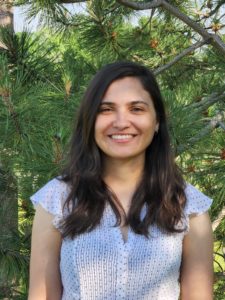




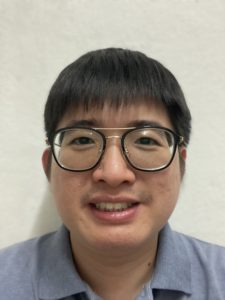




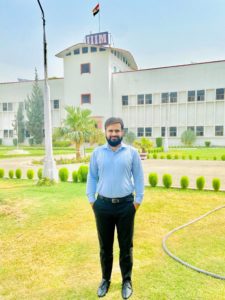











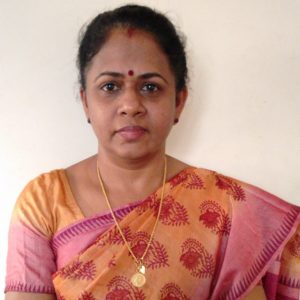

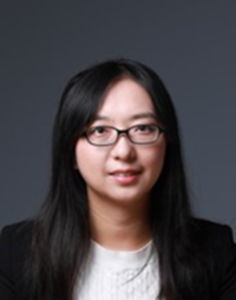

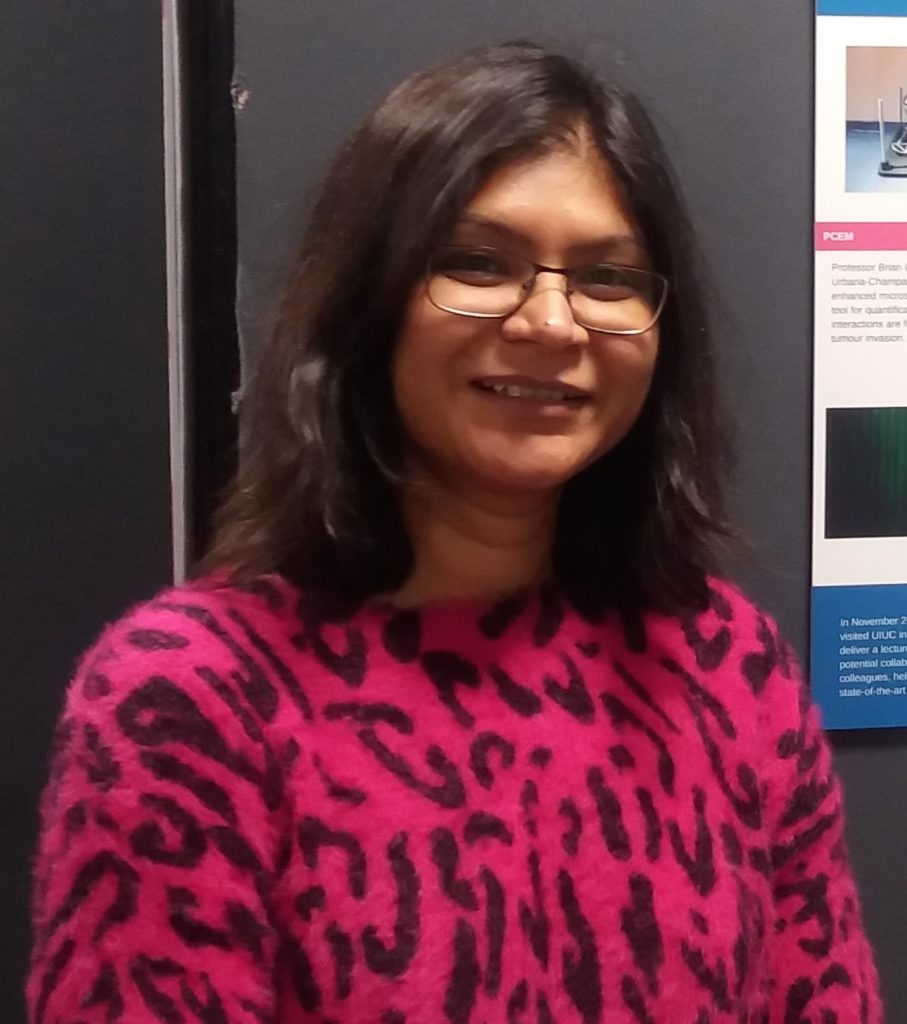


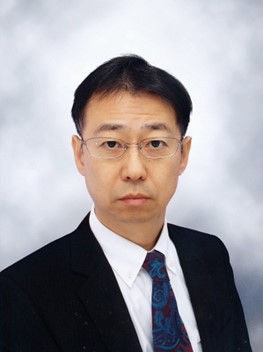
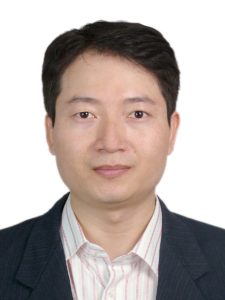 Qingdong Zheng is a Professor of State Key Laboratory of Structural Chemistry in the Fujian Institute of Research on the Structure of Matter, Chinese Academy of Sciences (CAS). He obtained his B.S. (1998), and M.S. (2001) degrees from East China University of Science and Technology, and his Ph.D. degree from the State University of New York at Buffalo in 2005. After carrying out his postdoctoral research at Johns Hopkins University, he joined CAS and took his current position in 2010.
Qingdong Zheng is a Professor of State Key Laboratory of Structural Chemistry in the Fujian Institute of Research on the Structure of Matter, Chinese Academy of Sciences (CAS). He obtained his B.S. (1998), and M.S. (2001) degrees from East China University of Science and Technology, and his Ph.D. degree from the State University of New York at Buffalo in 2005. After carrying out his postdoctoral research at Johns Hopkins University, he joined CAS and took his current position in 2010.